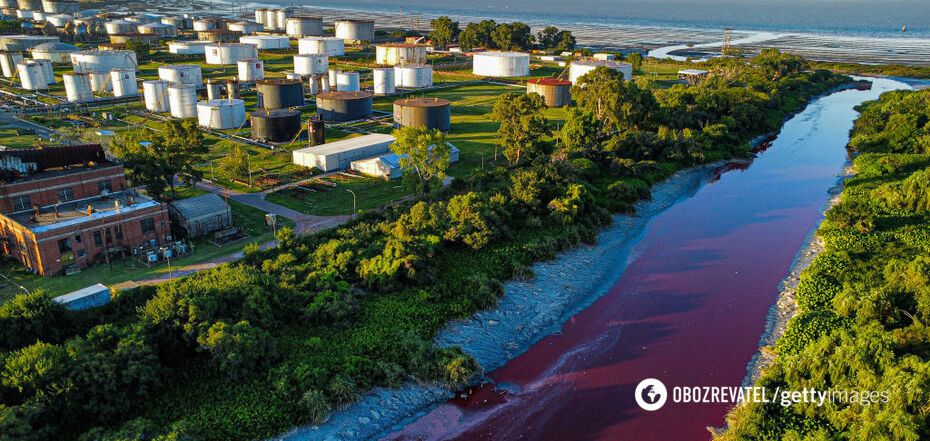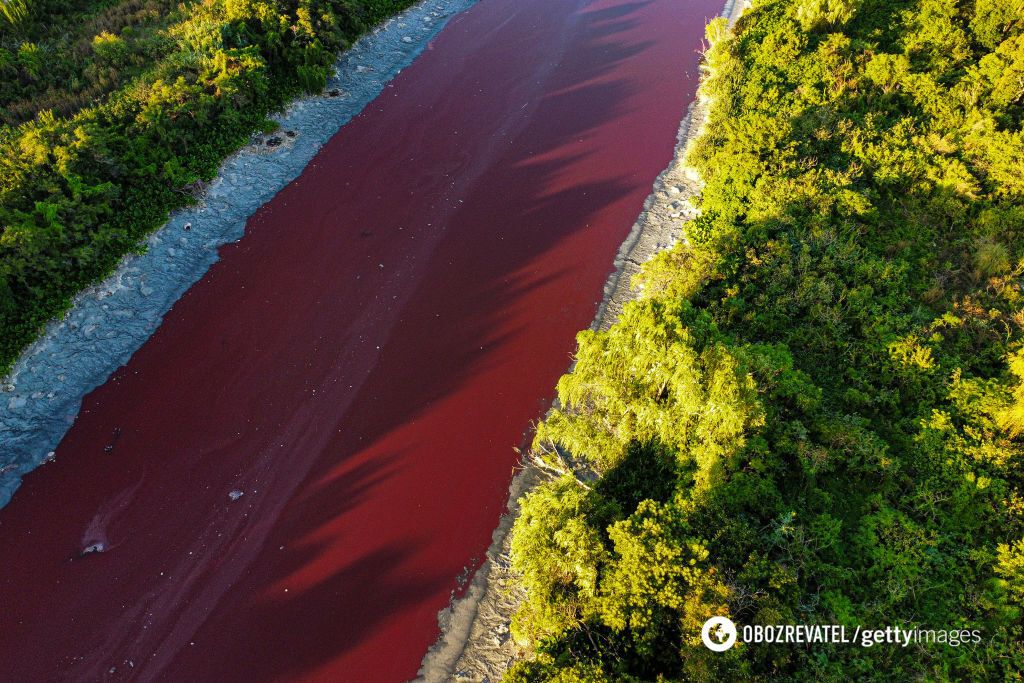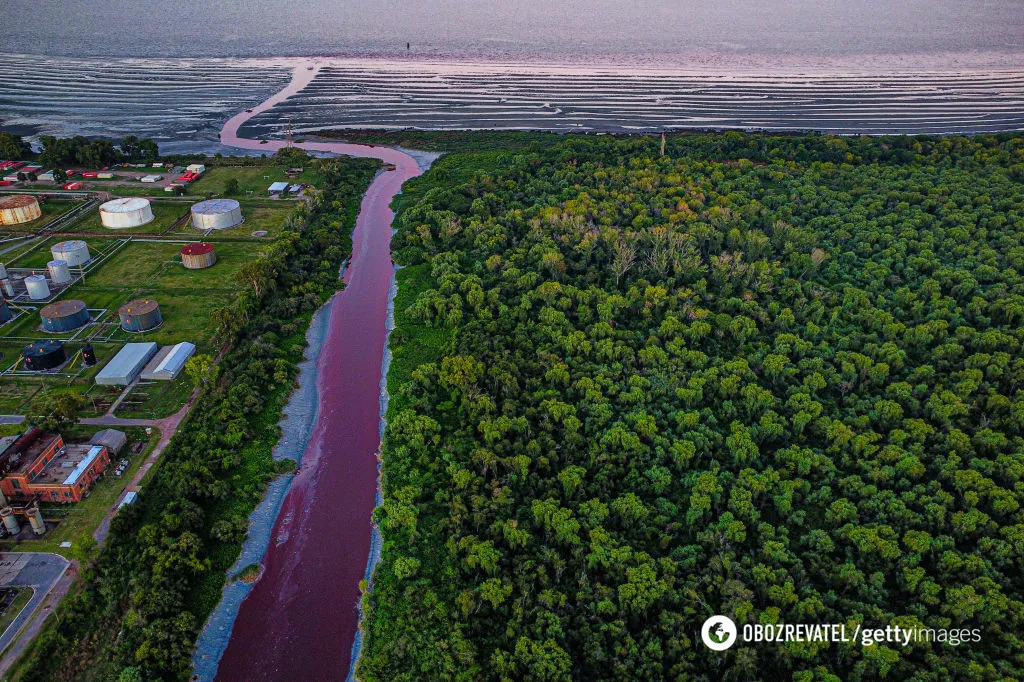News
A river near Buenos Aires has turned blood red and scared residents. Photos, video
A river in the suburbs of Buenos Aires, the capital of Argentina, suddenly turned blood red. This frightened residents, who expressed concern that industrial chemicals might be to blame.
Residents of Saranda, about nine kilometers south of the country's capital, speculated that chemicals from several factories and plants in the area may have changed the color of the stream that flows into the Rio de la Plata, the main body of water between Argentina and Uruguay. The Buenos Aires provincial environment ministry has collected samples of the stained water for further analysis to determine the source of the discoloration, the NewYorkTimes reports.
"Our mobile analytical laboratory was dispatched to the site and two liters of water were taken as samples for basic chemical analysis and liquid chromatography to determine which organic substance caused the discoloration. It is believed to be some kind of organic dye," the Regional Environmental Authority said in a statement, The Guardian added.
Maria Ducomles, who has lived in the area for more than 30 years, said that her family was woken up by the terrible stench. When they went outside, they saw that the river was blood red. "It looked like a river covered in blood," the woman said.
Ducomles, 52, said that over the years, the stream has changed various strange colors-blue, greenish, crimson, pink-and sometimes had an oily sheen. "It's horrible. You don't need to be an inspector to realize how polluted the poor Sarandi River is," said Maria.
Moira Zellner, a professor of public policy and urban affairs at Northeastern University who grew up in Buenos Aires and worked as an environmental consultant on river and land reclamation projects in the 1990s, blamed "chronic lack of regulation and lack of enforcement" for the region's pollution problems.
"Unfortunately, I'm not too surprised," Moira said of the red color of the Saranda stream. "There's a huge, long history of pollution in Buenos Aires' rivers, and it's really heartbreaking. I know that some of the populations that have settled there are really suffering from the consequences," the professor added.
Only verified information is available on the OBOZ.UA Telegram channel and Viber. Do not fall for fakes!





























